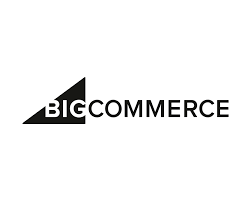JWCRM on >>> BigCommerce or Shopify
- Simon Wilcox

- Sep 23, 2024
- 2 min read
Both BigCommerce and Shopify are powerful eCommerce platforms, but they cater to different needs depending on your business requirements. Here's a comparison to help you decide which might be better for you:
Shopify
Ease of Use: Shopify is known for its intuitive and user-friendly interface. It's beginner-friendly and requires little to no technical knowledge to set up.
Customization: Shopify offers a wide range of free and paid themes, and with Shopify Liquid (its templating language), developers can create more customized stores.
App Ecosystem: Shopify has a vast app store with thousands of integrations, from marketing tools to inventory management.
Transaction Fees: Shopify charges transaction fees unless you use Shopify Payments.
Multi-Channel Selling: Shopify makes it easy to sell across various platforms (social media, marketplaces, in-person) and manage everything from one place.
Scalability: While great for small to medium-sized businesses, Shopify also has Shopify Plus, which offers solutions for larger enterprises.
Support: 24/7 customer support via phone, email, and live chat.
BigCommerce
Ease of Use: BigCommerce is slightly more technical, but still relatively easy for users with some experience.
Customisation: Offers more out-of-the-box customization options without needing to rely on apps, which reduces additional costs. You can tweak features without needing many third-party apps.
No Transaction Fees: BigCommerce does not charge transaction fees on any plans, which can be a major benefit for businesses with higher sales volumes.
Built-in Features: BigCommerce has a more robust set of built-in features (e.g., advanced SEO, marketing tools, and product management options), which can be beneficial if you want more control without paying for additional apps.
Multi-Channel Selling: BigCommerce also supports multi-channel selling across platforms like Amazon, eBay, and social media.
Scalability: BigCommerce is built to handle larger businesses and is often used by enterprise-level companies.
Support: 24/7 customer support, similar to Shopify, though some advanced features may require more technical knowledge.
Key Differences
Pricing: Shopify has more flexibility for small businesses with cheaper starter plans. BigCommerce tends to be more cost-effective at scale because it includes more features by default and doesn’t charge transaction fees.
App Dependency: Shopify often requires you to install apps to add features, which can increase costs, while BigCommerce includes many of these features natively.
SEO: BigCommerce has slightly more advanced SEO tools out of the box compared to Shopify, but both platforms perform well in this area.
Which to Choose?
If you're starting out and need an easy-to-use platform with lots of third-party integrations, Shopify is likely the better choice.
If you're a larger business or expect to scale quickly and want built-in advanced features (without paying for apps), BigCommerce might be more suitable.








Comments